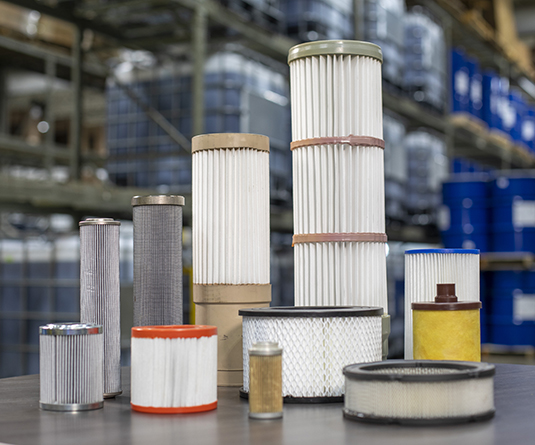In the filtration industry, selecting the right bonding technology for securing media into an end cap is critical to achieving optimal performance, cost efficiency, and manufacturing throughput. Among the most commonly used bonding technologies are epoxy resins (both one-part and two-part), plastisol, and polyurethane. Each of these materials offers distinct advantages, depending on the specific application. Understanding their properties can help filtration engineers identify potential areas for cost savings and process improvements.
Epoxy Resins: High-Strength and High-Temperature Performance
Epoxy resins are often the preferred choice for applications that demand superior chemical resistance and high-temperature stability. These materials provide excellent adhesion to various substrates and offer greater mechanical strength compared to plastisol and polyurethane. However, their longer cure times at room temperature can be a drawback for high-volume production lines that require fast processing.
Polyurethanes have become increasingly popular in filtration applications due to their fast curing times and versatility. They are widely used in automated production lines where short work-in-process (WIP) times are essential. While they generally do not achieve the same level of adhesion as epoxy resins, they still offer strong bonds and adaptability to different substrates. Furthermore, advancements in polyurethane formulations have enhanced their performance, making them a compelling alternative to traditional bonding technologies.
Plastisol has historically been a popular choice due to its low upfront material costs and ease of use as a single-component system. However, the processing requirements of plastisol introduce several hidden costs. To cure, plastisol requires prolonged exposure to temperatures exceeding 300°F, typically for at least 20-30 minutes. This necessitates the use of heat tables or ovens, which present several challenges:
Due to these drawbacks, many filter manufacturers are exploring more cost-effective and efficient alternatives to plastisol.
Recent advancements in polyurethane chemistry have provided viable solutions that address the limitations of plastisol. Two-component polyurethane systems offer several key benefits:
Epic Resins has developed Epic S7555, a two-component polyurethane system specifically designed to replace plastisol in cartridge filter manufacturing. This formulation offers the benefits outlined above, along with additional advantages:
For over six decades, Epic Resins has built a reputation as a trusted partner in the filtration industry. Our team of product development chemists works closely with customers to formulate materials that meet their exact requirements. We prioritize long-term partnerships by offering:
By leveraging our extensive experience and continuous investment in process improvement, Epic Resins helps filtration manufacturers enhance efficiency, reduce costs, and improve overall product performance.
For more information on how Epic Resins can support your filtration applications, visit www.epicresins.com.
